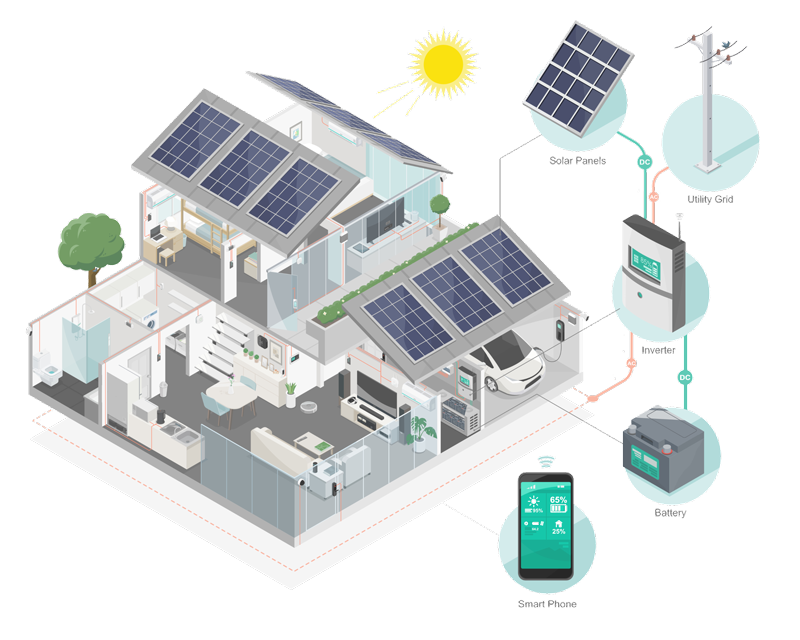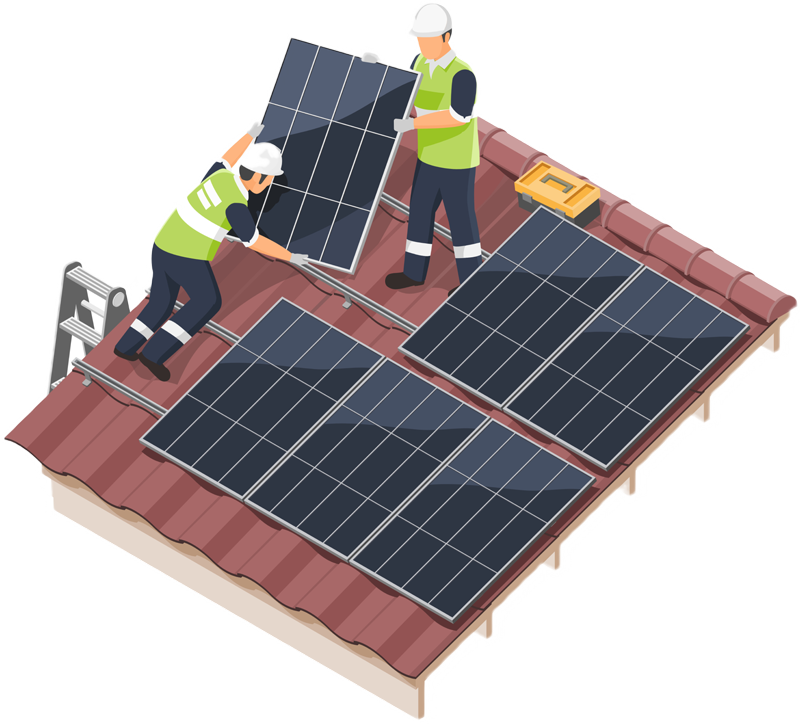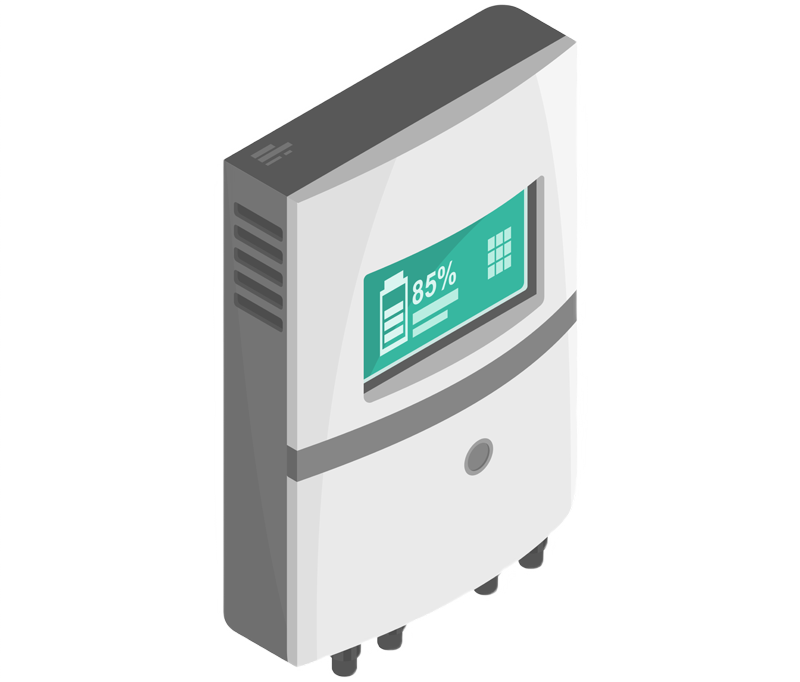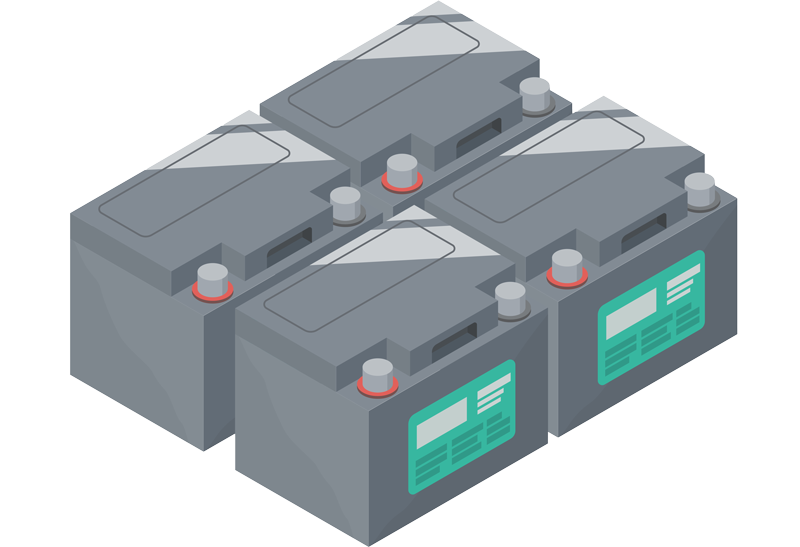Home - How solar works

The technical stuff
Solar energy works by capturing sunlight with solar panels and converting it into clean electricity. The panels generate direct current (DC) power, which is then transformed into usable alternating current (AC) electricity by an inverter. Excess energy can be stored in batteries or fed back into the grid. Experience the benefits of solar energy with JW Solar and embrace a sustainable power solution for your home.
Solar panels, also known as photovoltaic (PV) panels, are the core component of a solar PV system. These panels consist of multiple solar cells that convert sunlight into direct current (DC) electricity.
As sunlight hits the panels, the solar cells absorb photons, releasing electrons and generating a flow of DC electricity. This clean and renewable energy is harnessed and used to power various electrical devices and systems in your home. Solar panels are typically installed on rooftops or in open spaces to maximise sun exposure and generate the highest possible energy output.


Inverters play a crucial role in the solar PV system by converting the DC electricity generated by the solar panels into usable alternating current (AC) electricity. AC power is the standard form of electricity used in homes and businesses.
The inverter takes the DC power produced by the solar panels and sends it to the battery or transforms it into AC power, which can then be used to run appliances, lighting, and other electrical devices in your home. In addition, inverters also enable the system to feed excess electricity back into the grid, allowing you to earn credits or receive compensation for the surplus energy you produce.
Batteries provide the ability to store excess energy generated by the solar panels for later use when the sun isn't shining, such as during night-time or cloudy days. By storing this excess energy, you can maximise your solar power system's efficiency and increase your self-consumption of solar energy. Batteries are typically connected to the inverter, which manages the charging and discharging of the battery system.
During periods of low electricity demand, such as when your energy production exceeds your immediate consumption, the excess energy is directed to charge the battery. Then, when energy demand exceeds solar production, such as at night or during high energy usage periods, the stored energy in the battery is utilised to power your home, reducing reliance on the grid and maximising your solar energy utilisation.

The amount of energy that a solar panel system can generate depends on several factors, including the size of the system, the amount of sunlight your location receives, and the efficiency of the panels. In general, a solar panel system can generate enough energy to power a home or business, although the amount of energy generated may vary depending on the factors mentioned above.
There are many benefits to installing a solar panel system. Solar energy is a renewable and sustainable source of energy that can help reduce your carbon footprint and support a cleaner environment. Additionally, solar panel systems can help reduce your energy bills and increase the value of your home or business.
The installation of a solar panel system typically takes a few days to a few weeks, depending on the size of the system and the complexity of the installation. During the installation process, the solar panels are mounted on the roof or on the ground, and the wiring and inverters are installed to connect the system to your home or business.
The lifespan of a solar panel system depends on the quality of the components and the installation, as well as the amount of maintenance the system receives. In general, a well-maintained solar panel system can last for 25 years or more.
Yes, it is possible to install a solar panel system on a flat roof. However, the installation process can be more complex than for a pitched roof, and additional components may be required to ensure the system is properly mounted and secured.
The size of a solar panel system is determined by several factors, including your energy usage, the amount of sunlight your location receives, and the available roof space. A solar panel installer can help you determine the appropriate size of a solar panel system for your home or business based on these factors.
Solar panel systems typically come with several warranties. The solar panels themselves usually come with a manufacturer's warranty of 25 years or more. Inverters, which convert the DC power generated by the solar panels into usable AC power, usually come with warranties of 10-15 years. Additionally, many solar panel installers offer workmanship warranties that cover the installation of the solar panel system.
Copyright ©2023 JW Solar. Webdesign by anne+co Web Development by Juvo. All rights reserved.